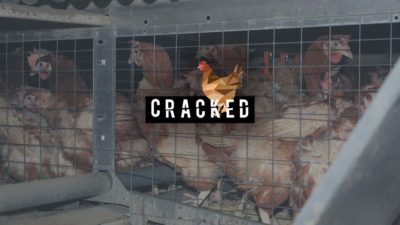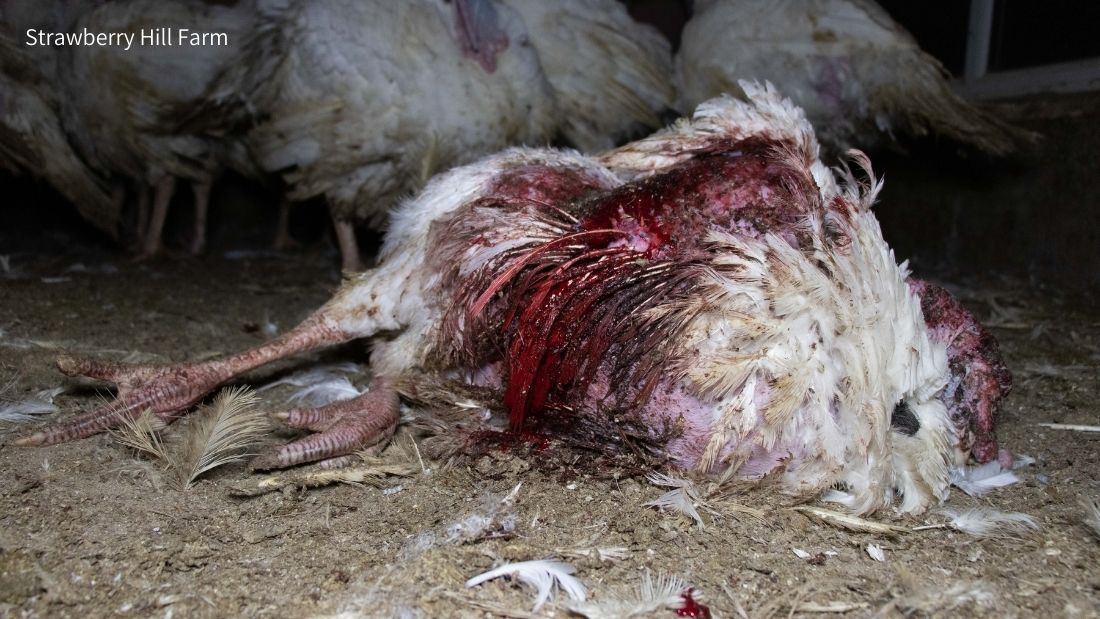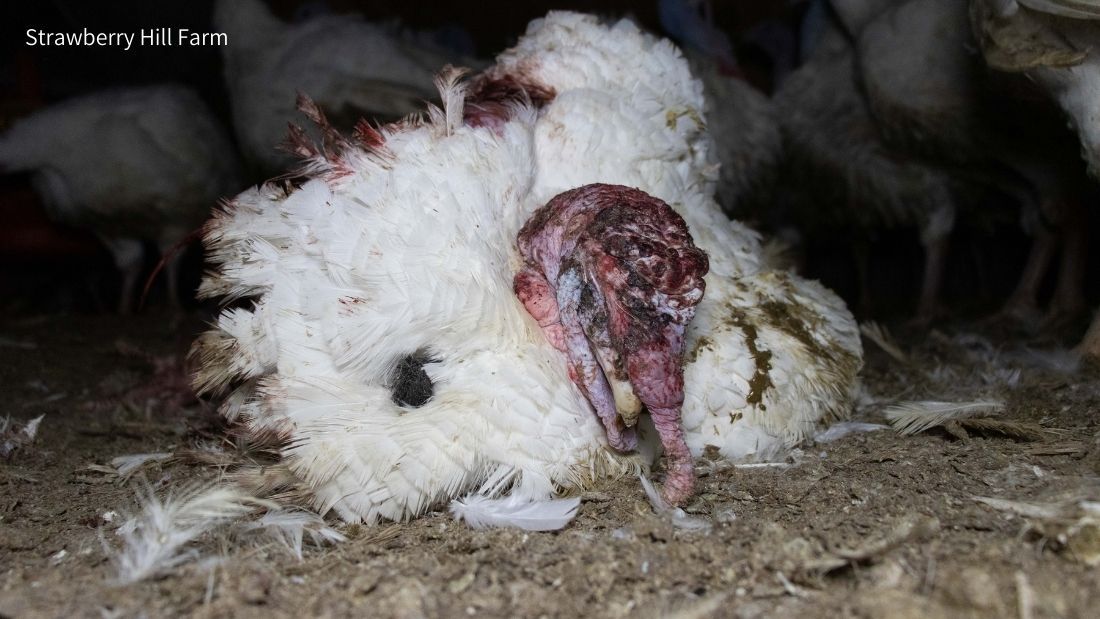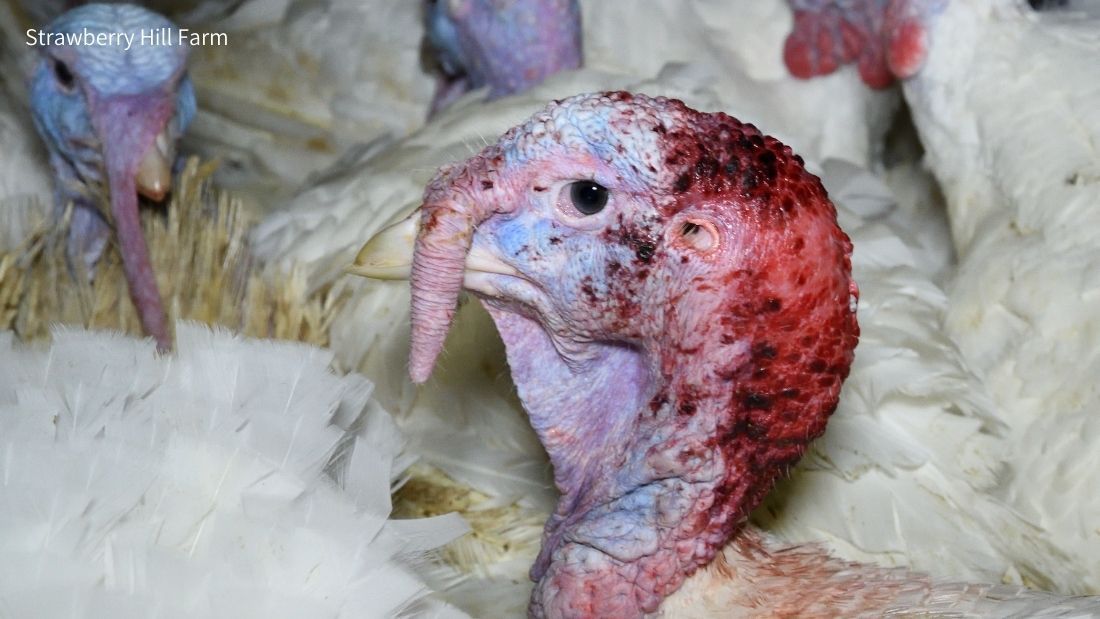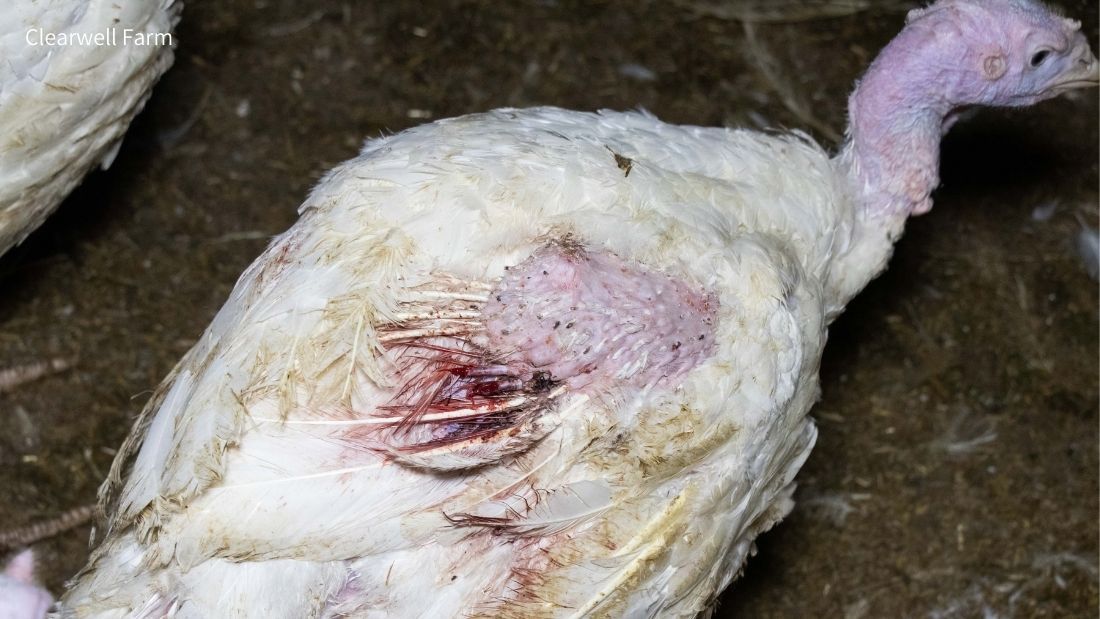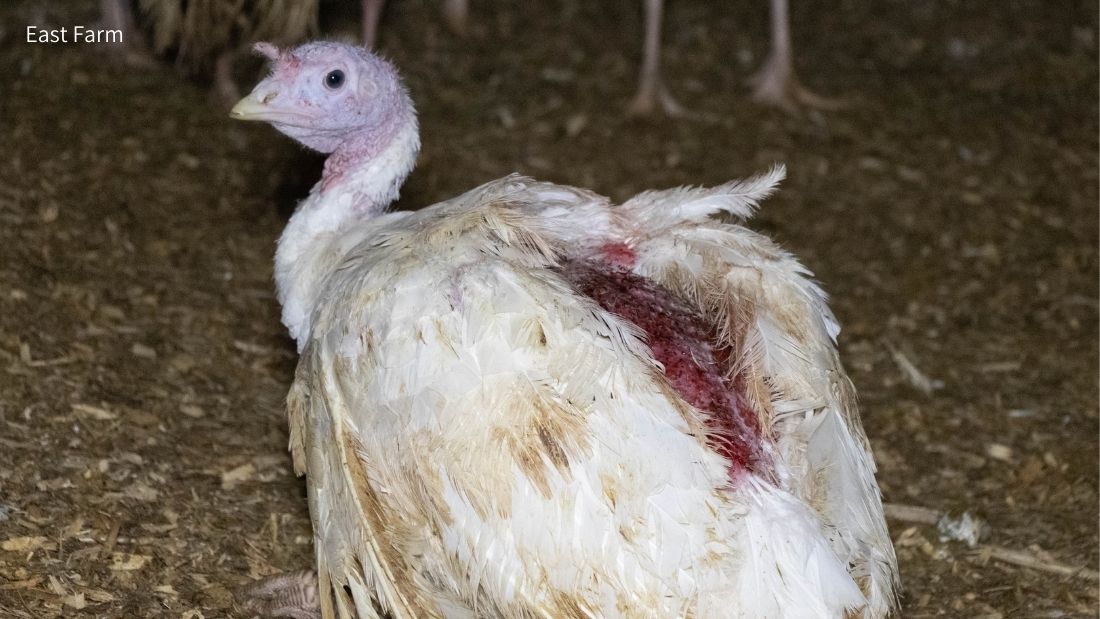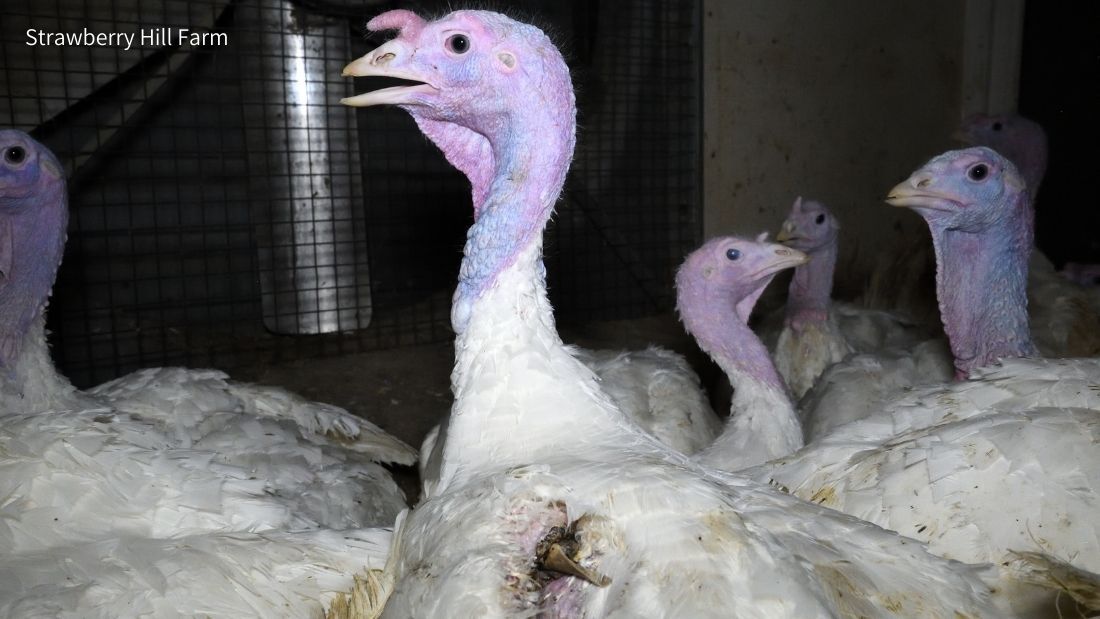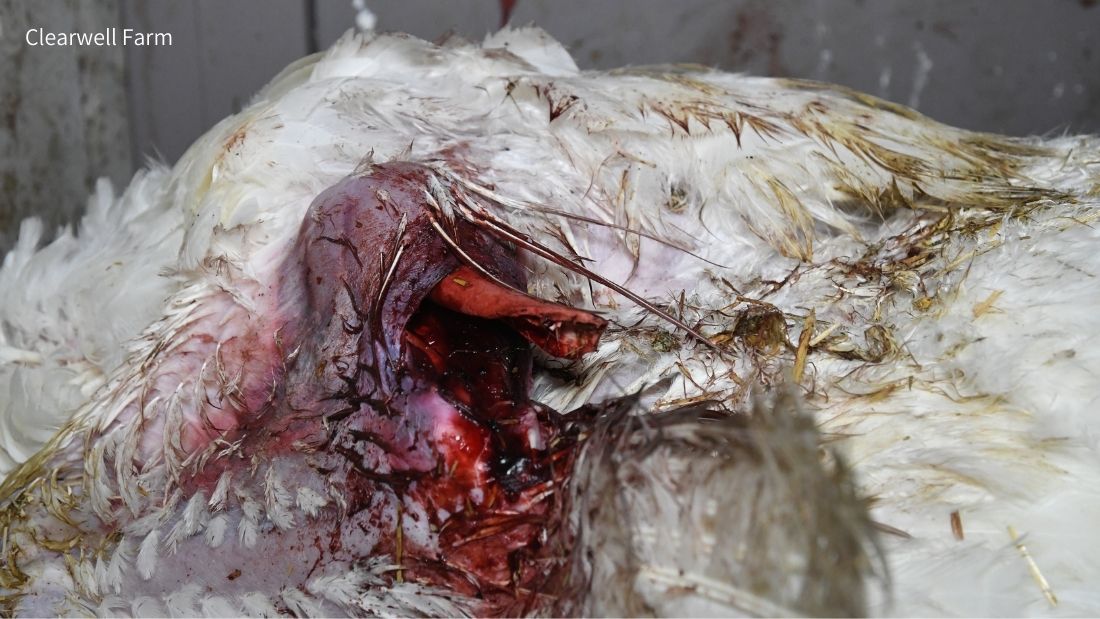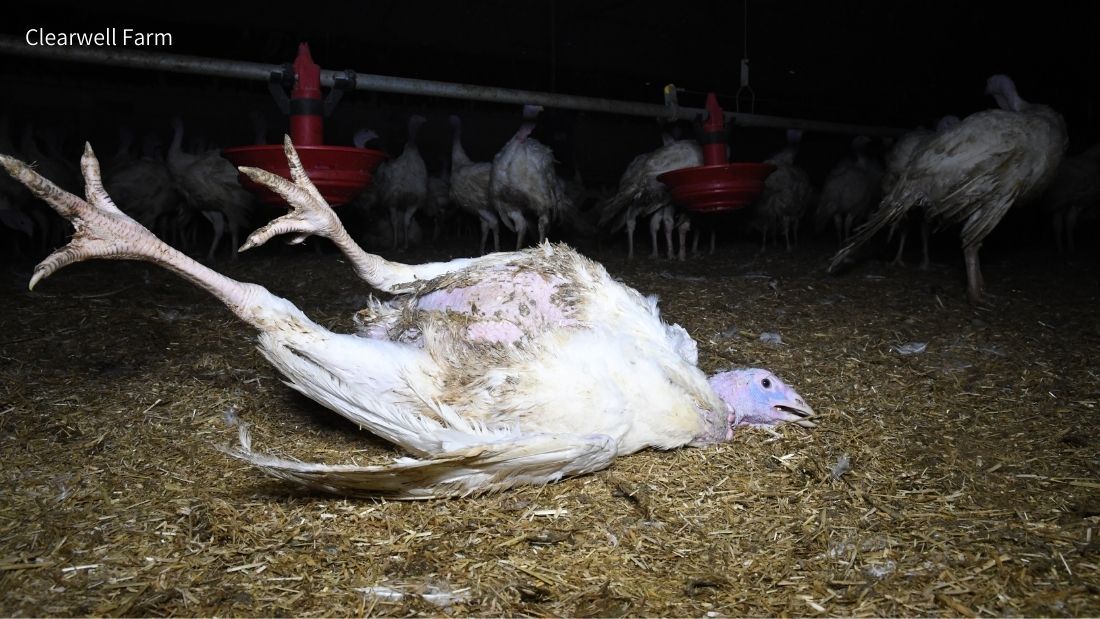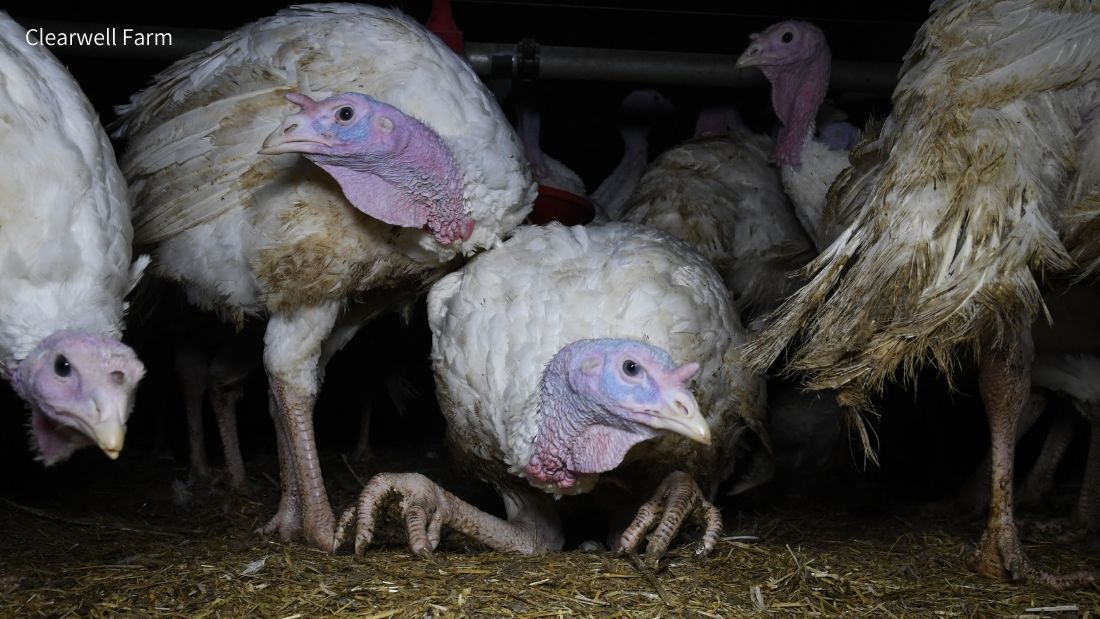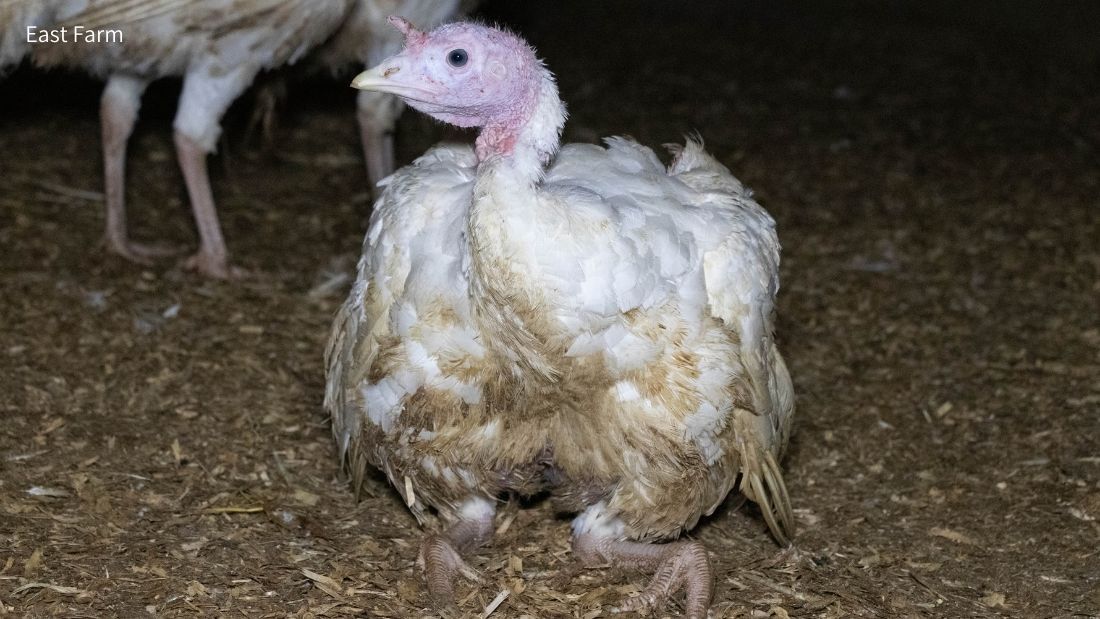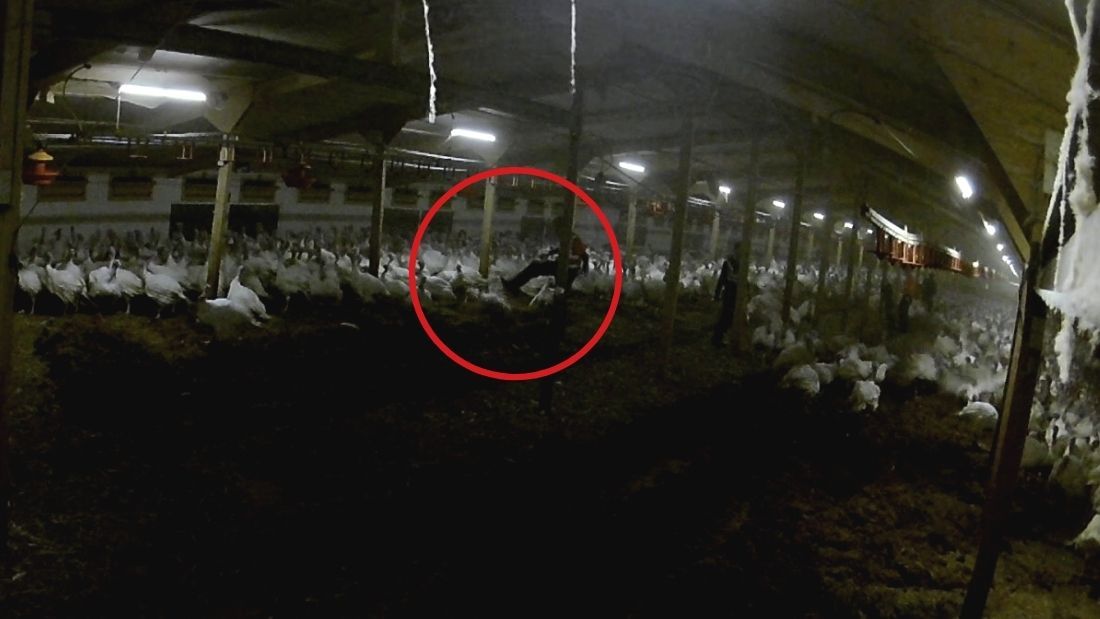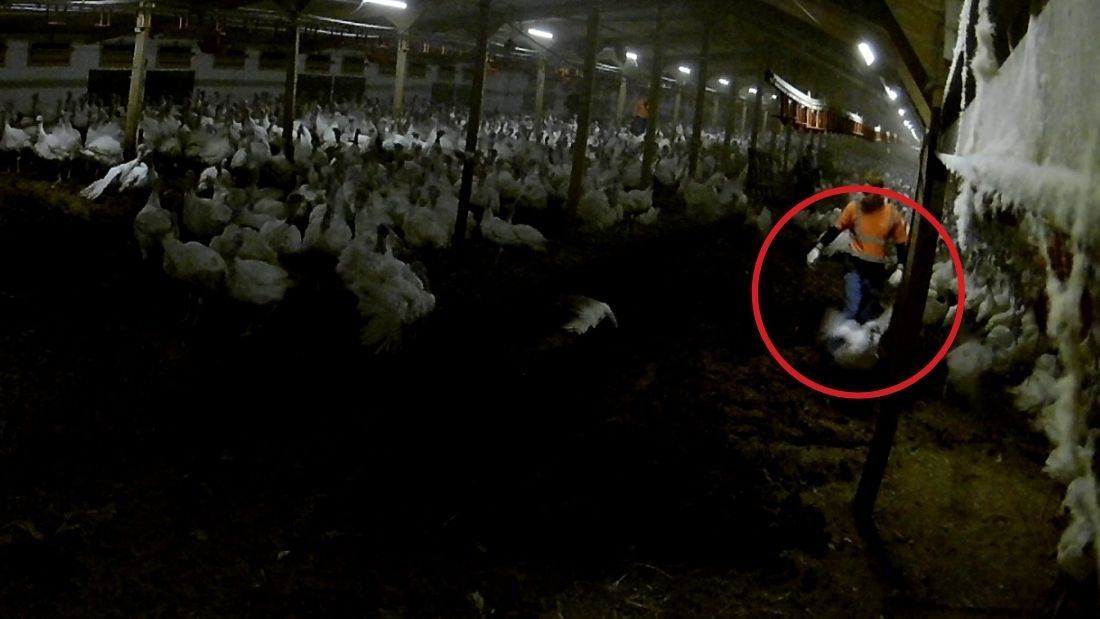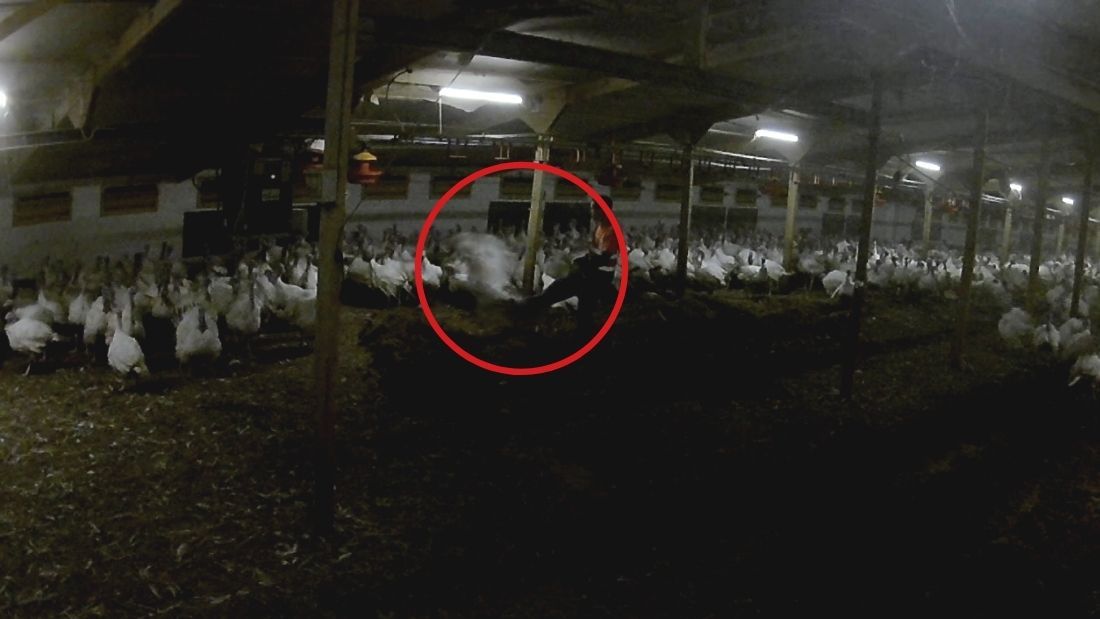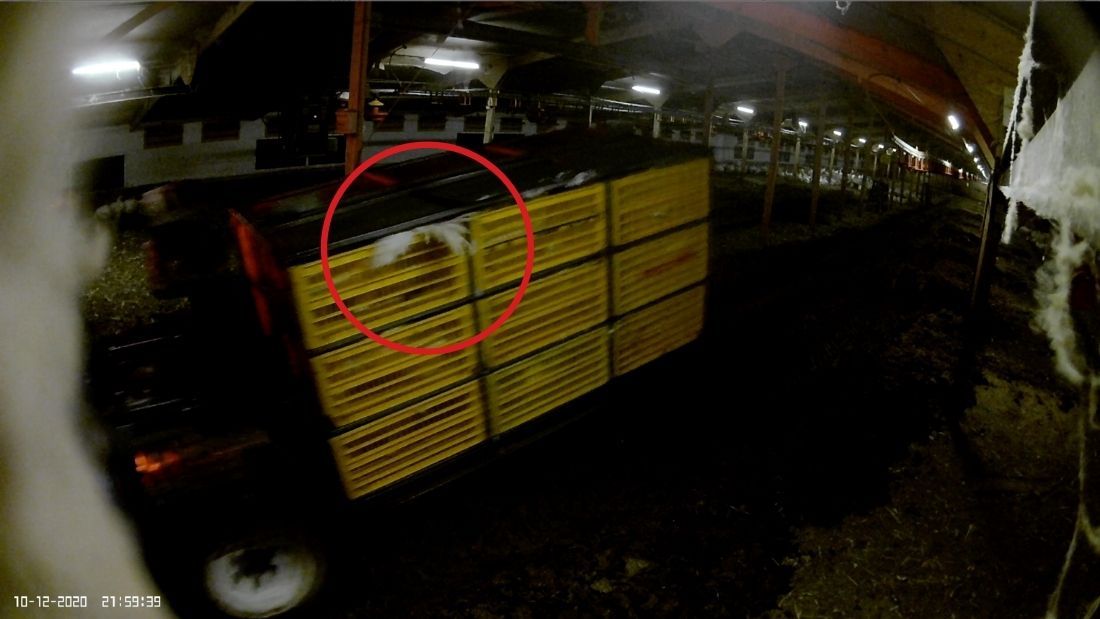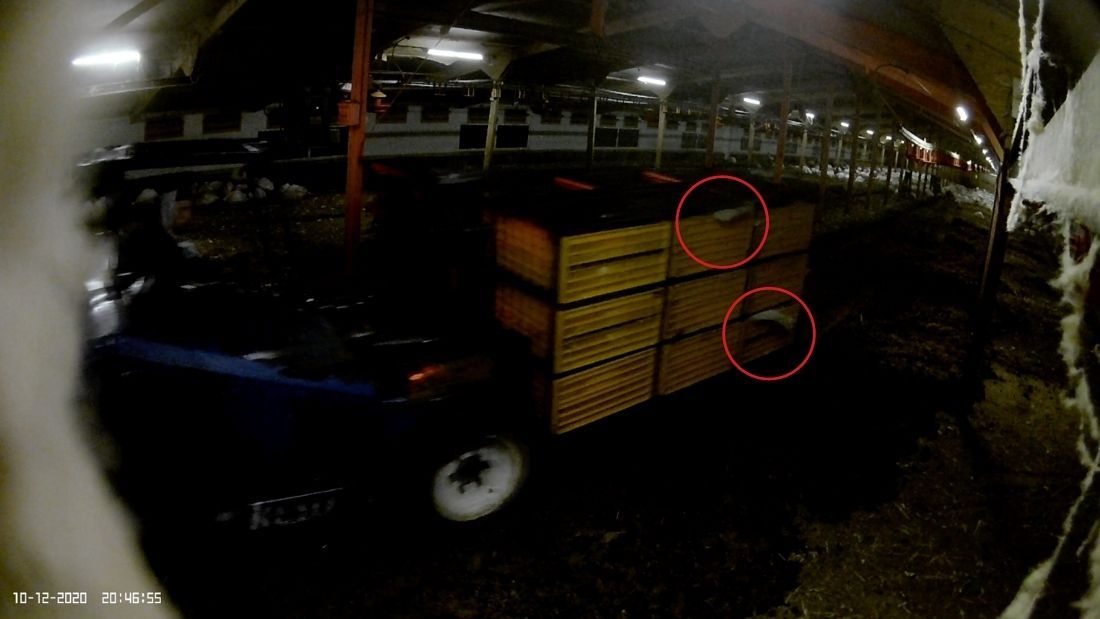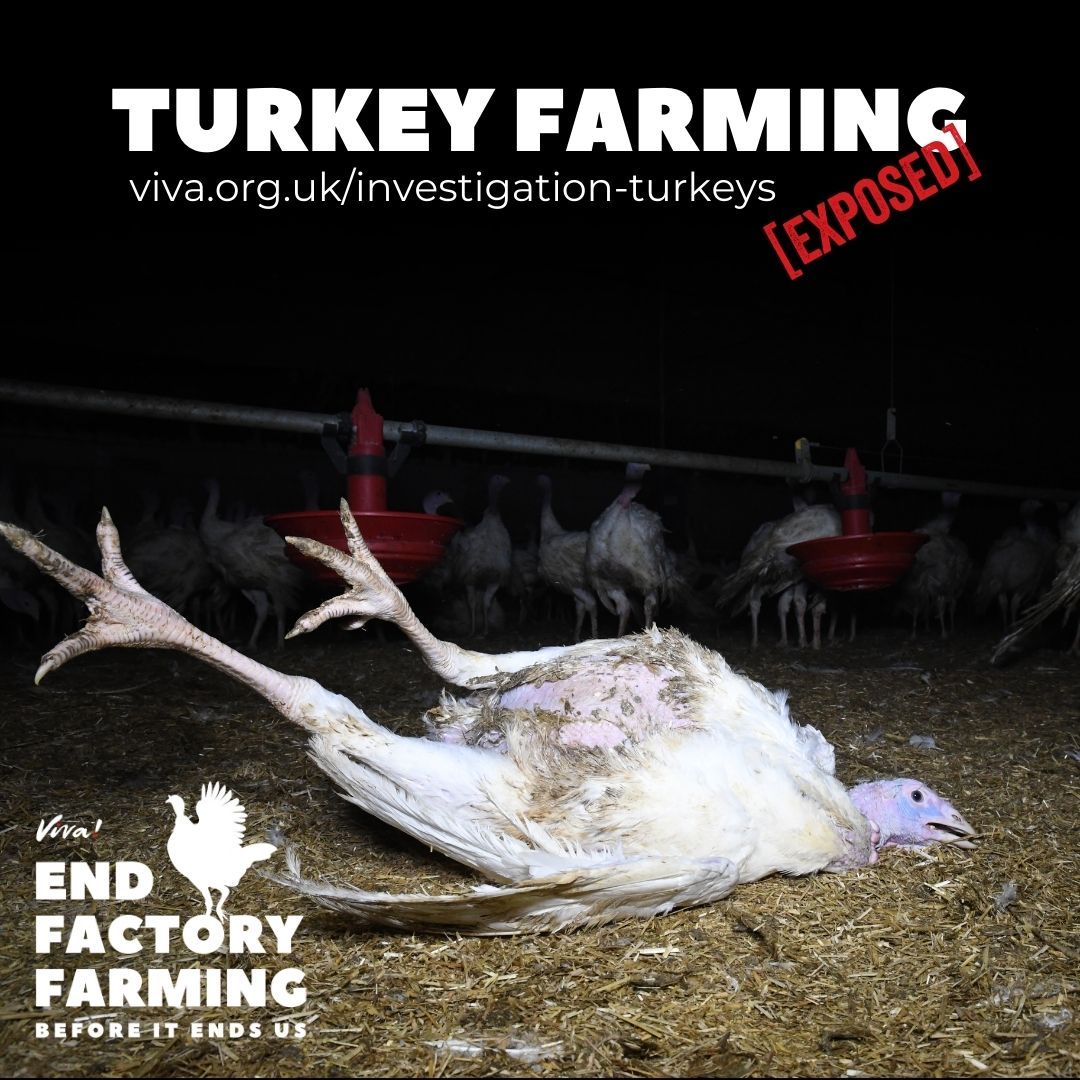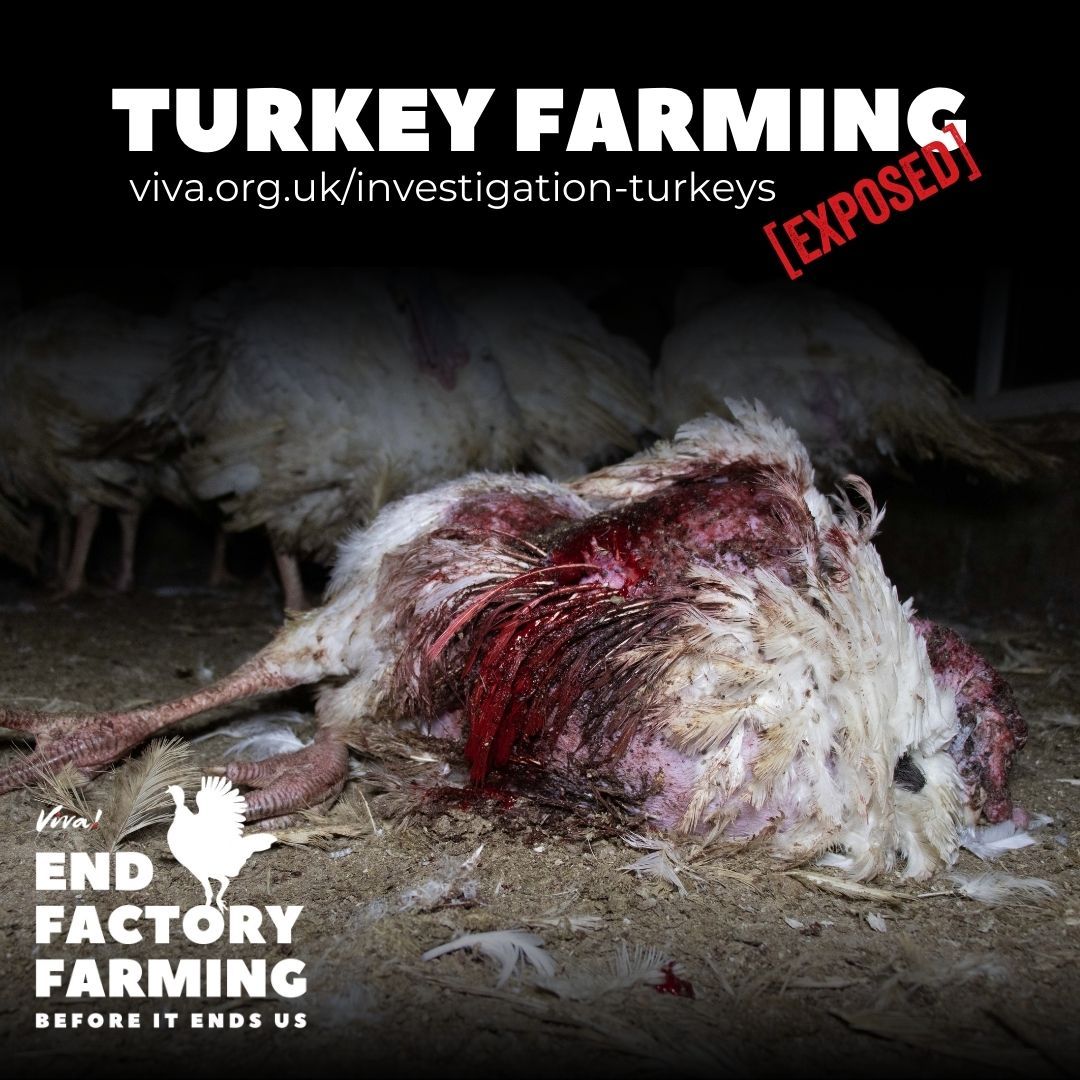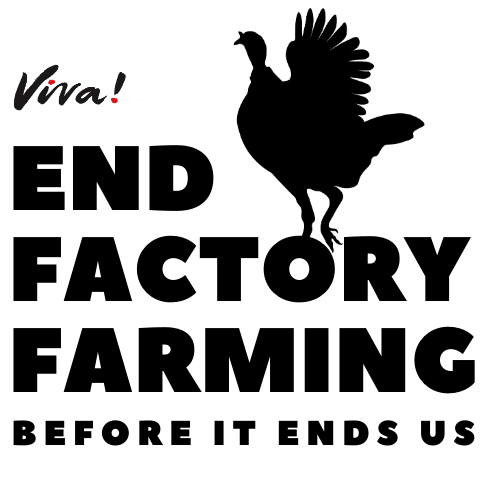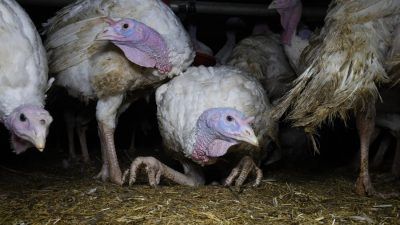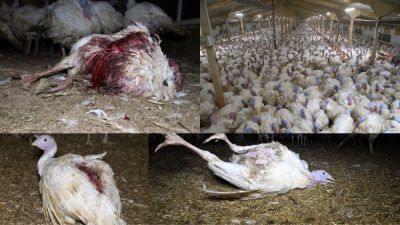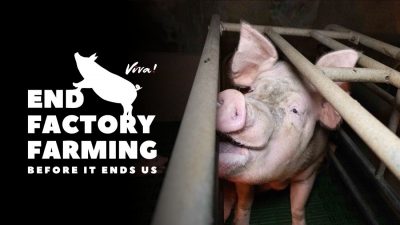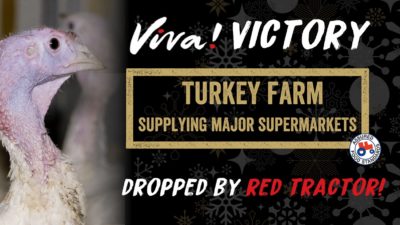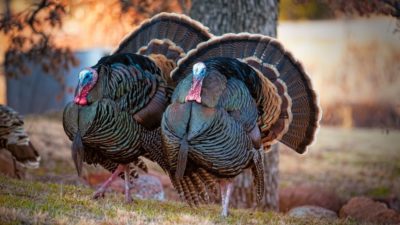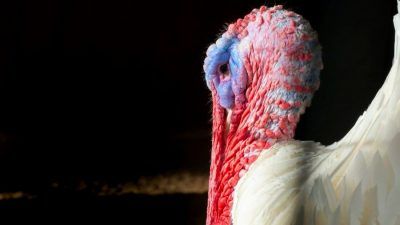Investigation: Xmas Turkeys
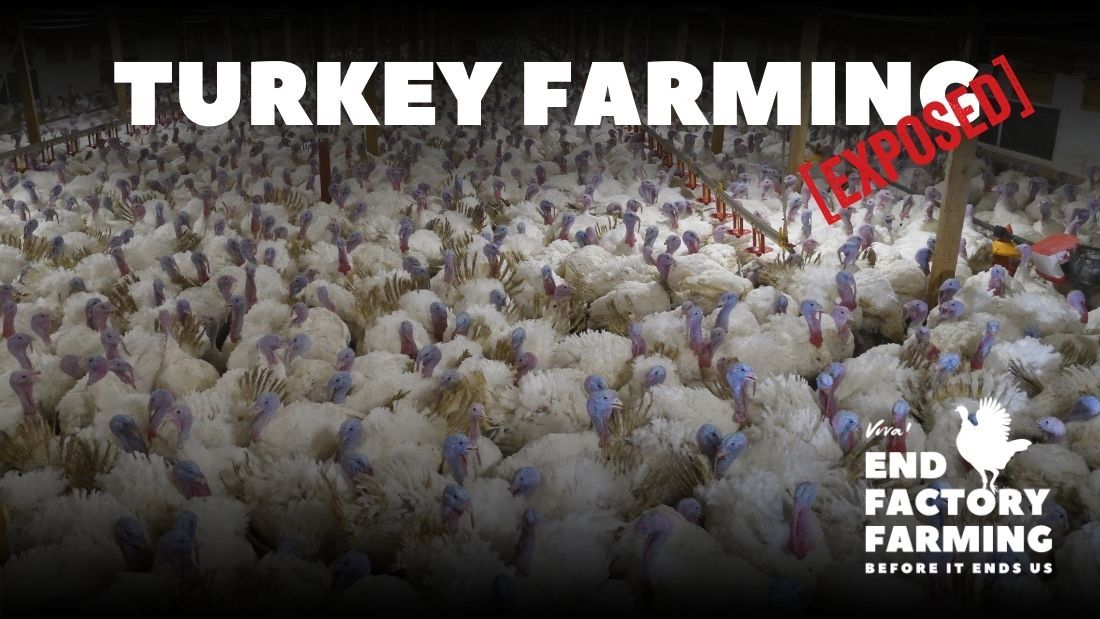
Footage from an undercover investigation into three British intensive Red Tractor turkey farms – East Farm, Norfolk and two Gloucestershire-based farms Clearwell and Strawberry Hill reveals shocking scenes of suffering and abject animal cruelty, all for the sake of Christmas dinner.
East Farm is operated by UK poultry giant Gressingham, who annually produce over eight million turkeys, ducks and chickens, and both Clearwell Farm and Strawberry Hill rear turkeys for Avara Foods. As two of the UK’s biggest food producers, Gressingham and Avara Foods supply household names like Tesco, Sainsbury’s, ASDA, Morrisons and Ocado.
More images from the investigation can also be publicly viewed on Flickr.
Read The Independent Exclusive
Forced to live inside cramped sheds, these turkeys never see the light of day and are mechanically fed, watered and continually weighed to ensure maximum growth and profit. They suffer from stress, boredom and frustration, which manifests in severe pecking, bullying and cannibalism.

At all three farms, investigators found a concerning number of birds suffering from disturbing injuries, likely due to a lack of appropriate environmental enrichment.
Turkeys are naturally inquisitive and explore their environment and investigate new objects by pecking. It’s therefore recommended that farmers provide suitable forms of environmental enrichment, to reduce stress and pecking of other birds.
However, dying birds were found with devastatingly bloody wounds caused by other birds pecking out their feathers, which appeared to have gone untreated for a considerable time. These conditions are in direct contradiction to Avara Foods’ animal welfare policy, which claims:
Our birds would rather peck at the drinkers, feeders, or other pecking objects than each other.
The rate at which these birds grow is unnaturally fast and frequently leads to leg disorders, joint degeneration and heart disease. During this investigation birds were found to be so overweight they struggled to stand after falling over – resulting in problems accessing food and water.
A number of turkeys at Strawberry Hill Farm were also found with broken wings – one with a necrotic wing bone significantly protruding from the injury. This particular breakage would have been difficult to miss in a ‘welfare check’ and at the time of breakage would have been excruciatingly painful. Since the wound had healed over, it appeared that the injury had gone completely untreated.
Red Tractor states ‘the health and welfare of birds must be checked regularly’, with flock inspections carried out at least twice daily. The stockmen must walk within three metres of every bird and encourage them to move. Yet this investigation observed a worker at Strawberry Hill Farm making just one health and welfare check per day.
Similarly, at Clearwell Farm, a worker was filmed making one thorough check in the morning and following up with a quick opening of the door in the evening. These instances meet only the basic government guidelines rather than Red Tractor standards. Although it’s likely workers did walk within three metres of every bird, this is an insufficient distance to ensure each bird is ‘well’, as the images below attest.
At a mere 132 days old, the turkeys at Strawberry Hill Farm were filmed being caught ready for slaughter, forced into crates and loaded onto a transport truck. Investigators filmed workers during the catching process and recorded birds being ruthlessly kicked more than 218 times while being herded.
Many of the birds were carelessly trapped, with their wings caught in the transport crates and workers repeatedly failed to remove the trappages before loading, causing unnecessary suffering. This is in clear violation of Red Tractor guidelines which state:
Staff must ensure that no part of the bird has become trapped by the crate or module:
- The nominated member of the catching team is responsible for ensuring trappages do not occur
- The driver is responsible to check for bird trappages

“The welfare of these turkeys was compromised in several ways. The turkeys were very tightly packed together in a barren environment. With little else to do, the innate urge to peck and explore can lead to feather pecking by more dominant birds. Some turkeys showed severe signs of feather loss and injury. Particularly disturbing was a turkey with feather loss and a severe, raw wound, over most of its back. This bird was also unable to stand or easily move. Some others were similarly affected. One was literally thrashing around on its back, unable to right itself. These birds were clearly severely lame or injured, and in need of veterinary care. Most of the birds also had dirty feathers from being forced to lie on dirty flooring.”
– Professor Andrew Knight (veterinary expert)
Share our investigation graphics
Download one of the graphics below and share with the following text:
The life of a factory-farmed turkey is filled with nothing but pain, discomfort and fear. End Factory Farming Before It Ends Us.
👉 viva.org.uk/investigation-turkeys
#EndFactoryFarming #EFF
Share our investigation video
Copy the link below into the status bar on your social media accounts or email to a friend.
Turkey Farming Exposed: https://youtu.be/VyazykaR3Ek
Share our End Factory Farming turkey logo
Your voice counts!
Join us in calling on Prime Minister Boris Johnson to End Factory Farming Before It Ends Us.
End Factory Farming
Choose Vegan
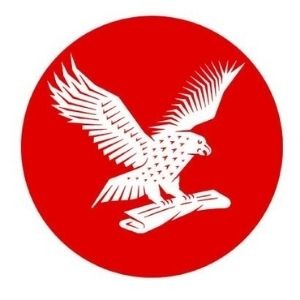


The Ecologist: Turkeys suffer at Christmas factory farms

One Green Planet: Animal Abuse Exposed at Turkey Farm Supplying to Major UK Supermarkets

